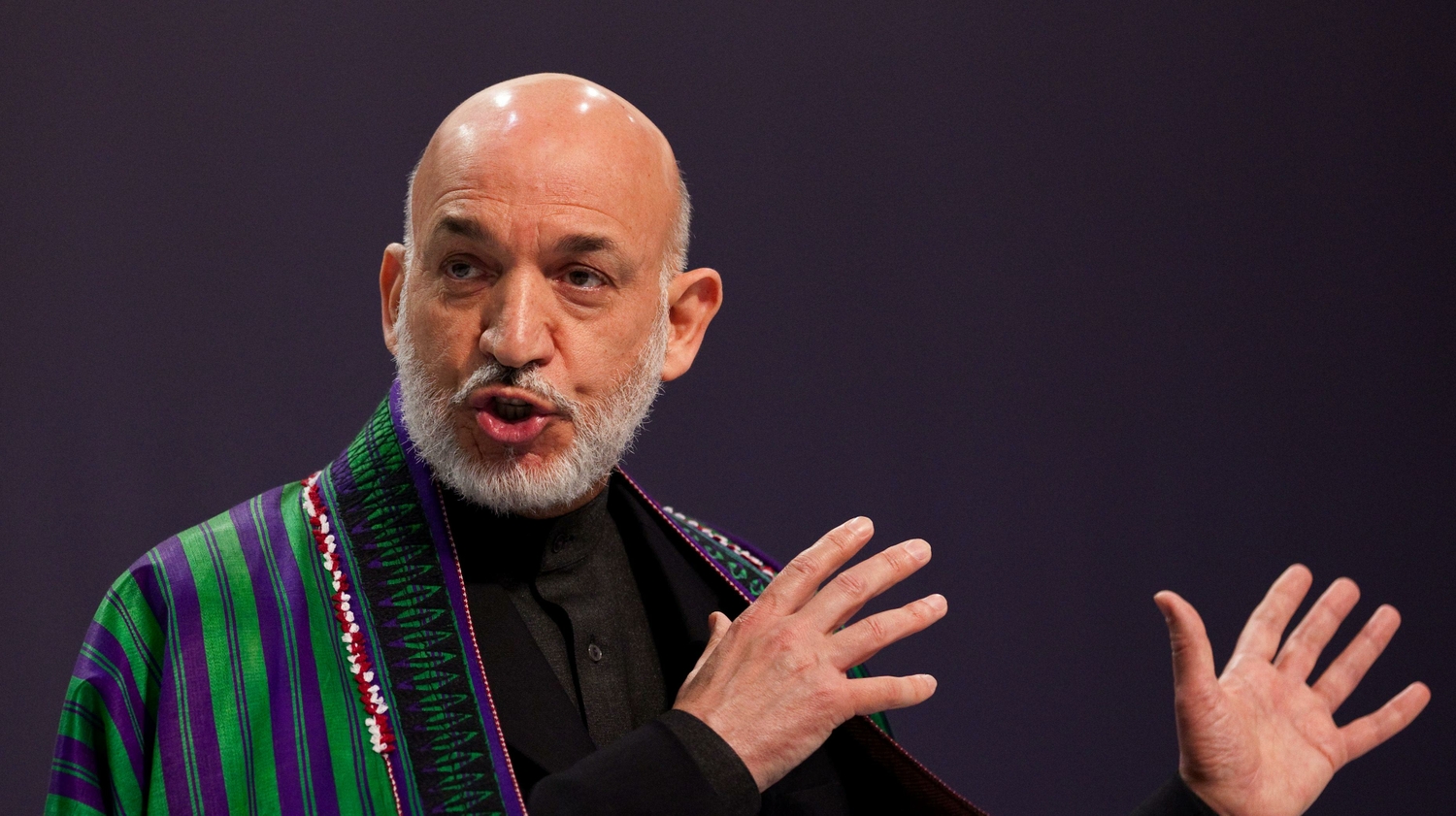Karzai Hits Out at US And Pakistan in Farewell Speech
Outgoing Afghan President Hamid Karzai

NEW DELHI: Outgoing Afghan President Hamid Karzai, in his farewell speech, hit out at the United States and neighbouring Pakistan for the continuing Taliban-led insurgency in the troubled country.
Karzai in his speech, which came a few days ahead of the swearing in of Afghanistan’s new President, Ashraf Ghani, who has been elected following a unity deal with rival candidate Abdullah Abdullah that brought to a close months of political wrangling, warned the new government to be "be extra cautious in relations with the US and the West.”
"One of the reasons was that the Americans did not want peace because they had their own agenda and objectives," Karzai said, stopping short of elaborating but perhaps referring to, as he has in the past, the claim that the US has fuelled militancy in Afghanistan in order to provide a justification to keep its military bases in the country.
The outgoing President also implicated Pakistan, as he has in the past, for failing to control terrorism and encouraging a spill-over of militants across the Afghan-Pakistan border. "Today, I tell you again that the war in Afghanistan is not our war, but imposed on us and we are the victims," Karzai said, adding, “"No peace will arrive unless the U.S. or Pakistan want it."
Karzai’s outgoing speech had themes similar to his final address to the Afghan parliament, where he reiterated his stand to not sign the Bilateral Security Agreement (BSA) with the United States that will allow up to 10,000 foreign troops to remain stationed in the country post December 2014. Karzai said that the Afghan military, which already protects 93 percent of the country, was ready to take over entirely as it was capable of defending Afghanistan without assistance.
Karzai’s comments criticising US presence in Afghanistan are in line with his efforts to ensure that his legacy does not include a commitment to foreign military presence. They also represent deteriorating relations between Karzai’s government and the Obama administration, a change from previous times when Karzai served as a key US ally, and was in fact, brought into power with US support and backing.
"I want to say to all those foreign countries who, maybe out of habit, or because they want to interfere, that they should not interfere," Karzai had said in his speech to the parliament. The Afghan president had previously, in an interview with a US publication, whilst expressing “extreme anger” at the US said that the war in Afghanistan was not fought with the country’s interest in mind. "Afghans died in a war that's not ours,” said Karzai, adding that the purpose of the war was to further " US security and for the Western interest." "It's good for them to sign it with my successor," Karzai had said in reference to the BSA.
In his more recent speeches, Karzai has continued in the same vein, stating that the war in Afghanistan had been “imposed” on the country and that the US should demonstrate seriousness about bringing peace to the war-torn country by targeting “terrorist sanctuaries” and countries that support “terrorism” - a reference to Pakistan.
Accusing Pakistan of protecting the Taliban’s leadership, Karzai urged the Taliban to join the peace process. In February, a delegation from Afghanistan’s High Peace Council traveled to Dubai to meet Taliban figures in what was possibly President Karzai’s last major push for peace talks before his term came to an end. Prior to this visit, the Taliban had thus far refused to negotiate directly with Karzai, labelling him an illegitimate leader and denouncing his government.
Taliban leaders that have shown a willingness to engage with the Afghan government have been targeted and killed, with the recent killing of Maulvi Abdul Raqeeb, who was Minister of Martyrs and Refugees during the Taliban's five-year rule and a supporter of direct talks with the government, being a clear example of the Taliban’s position on peace talks. Karzai referred to this incident in his speech to the Afghan parliament, pointing to Pakistan’s involvement in the killing of Raqeeb.
The Taliban’s unwillingness to cooperate is evinced by their recent statement denouncing the polls as a “sham” manipulated by the United States. The Taliban, referring to Ghani’s election as the country’s next President, said, “Installing Ashraf Ghani and forming a bogus administration will never be acceptable to the Afghans.” The Taliban’s spokesperson, Zabihullah Mujahid, in a written statement, continued, “The Americans must understand that our soil and land belong to us and all decisions and agreements are made by Afghans, not by the US foreign secretary or ambassador.”



